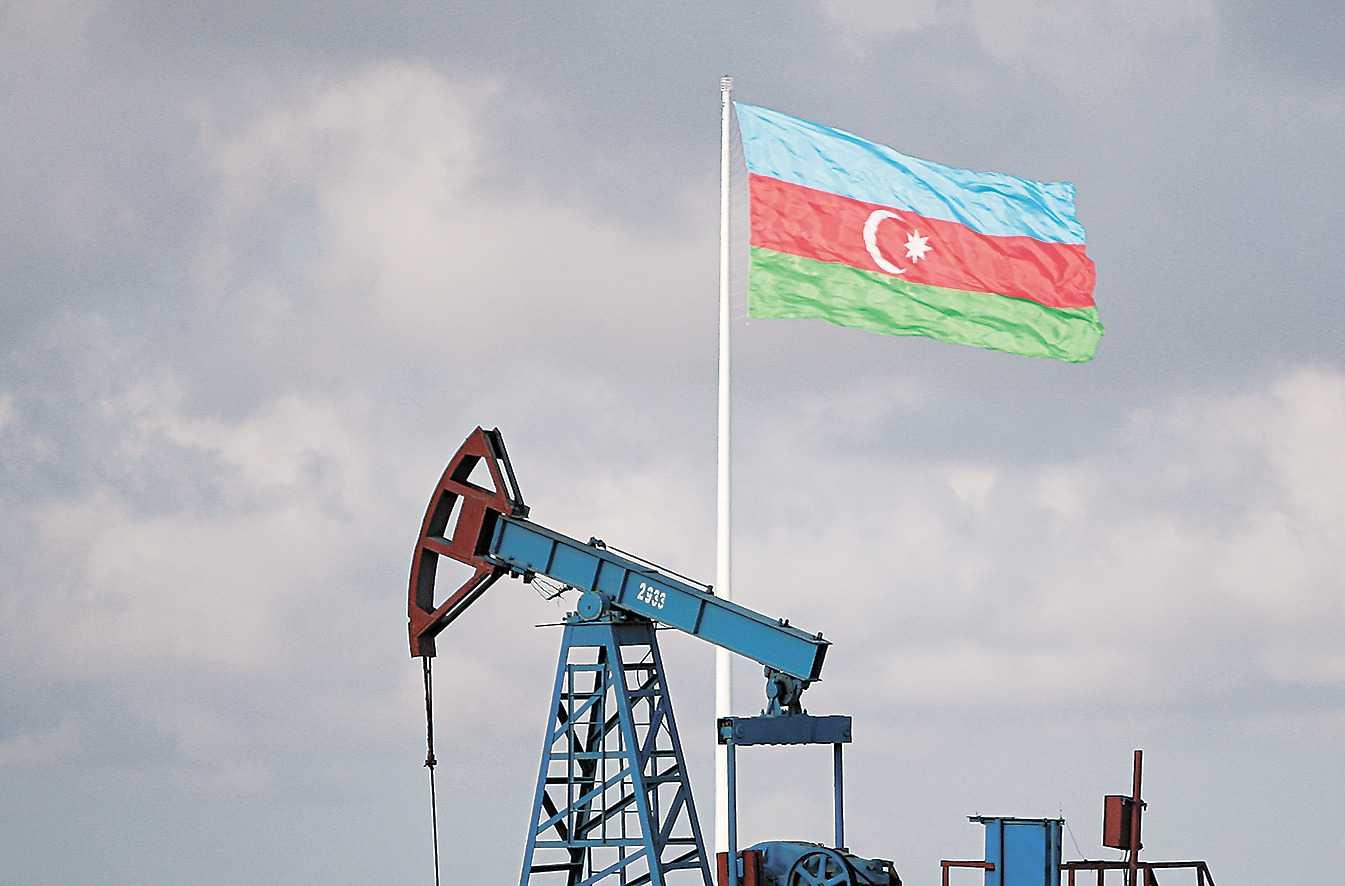A look into oil production quotas, market dynamics Azerbaijan benefits from OPEC+ stability
Member states of the Organization of the Petroleum Exporting Countries (OPEC) and their partners under the OPEC+ program have taken further steps to stabilize oil production and reduce volatility of market prices for energy resources.
During the 37th meeting of OPEC ministers in the online format, they agreed to extend voluntary cuts in oil production in the amount of 2.2 million barrels per day for the third quarter of 2024, and also discussed plans for 2025. Azerbaijani Energy Minister Parviz Shahbazov, who attended the meeting, supported the decision to extend the current “Declaration of Cooperation”. Nevertheless, the situation on the energy market is still far from stable: on June 4, the price of Brent crude oil fell again.
Last year, the global market experienced a high level of volatility in oil prices due to the global recession and downturn in the economies of Europe, North America, Japan, China and the Asia-Pacific region. In particular, the decline in GDP growth rates of the world's leading economies was affected by the fight against inflation, which forced central banks to sharply increase interest rates: as a result, the rise in the cost of borrowed funds led to an investment slowdown and a slowdown in production and demand in the consumer market. All of this ultimately resulted in a decline in global demand for hydrocarbons and fuels in the first three quarters of last year.
Oil prices started to rise in the fall of 2024 amid escalating conflicts in the Middle East. By mid-November, the October outbreak of the Palestinian-Israeli war in the Gaza Strip had already turned into attacks by the rebellious Ansar Allah movement in Yemen: attack drones and anti-ship missiles (ASM) of the Hussites significantly reduced the movement of cargo ships and tankers in the waters of the Red Sea and the Bab el-Mandeb Strait, increasing the costs of oil transportation. As a result, despite volatile demand and energy market volatility, oil prices generally held above last year's average in January-March 2024.
The ongoing Russian-Ukrainian conflict, production cuts in Russia, the spring decline in US oil and fuel inventories and, importantly, the OPEC+ countries' policy of refusing to increase production this year contributed to the bullish trends in the commodities market. In April and June last year, OPEC+ countries agreed on voluntary production cuts of 1.66 million barrels per day (bpd) in 2023 and 1.4 million bpd in 2024, respectively. Experts reported that the cartel countries would leave unchanged their policy of curbing oil production this year shortly before the ministerial meeting of the cartel members. Initially, the 188th OPEC meeting, the 54th meeting of the Joint Ministerial Monitoring Committee (JMMC) and the 37th ministerial meeting of OPEC+ countries were to be held on June 1 in Vienna.
However, in May, the meeting time was moved to June 2, the Austrian location was replaced by Riyadh, and instead of a full-fledged meeting format, the ministerial meeting was held via video conferencing.
“The decision to hold the meeting online confirms the expectation of extending the policy of production cuts,” Viktor Katona, Lead Crude Analyst at French Kpler Ltd, said a week before the meeting. The market had already fully priced in quotes the upcoming OPEC decision to extend the production cuts. However, market participants did not take into account the fact that this will lead to a tightening of the situation with the balance of supply and demand in the oil market in the third quarter, for which traders, it seems, are not ready”.
On June 2, under the ministerial agreements eight OPEC+ countries, including Saudi Arabia, Russia, Iraq, UAE, Kuwait, Kazakhstan, Algeria and Oman, decided to extend the voluntary reduction of oil production in the amount of 2.2 million barrels per day (bpd) in order to balance the market. In turn, the authorized level of oil production of OPEC+ countries for 2025 was increased by 400,000 bpd, mainly due to the growth of the quota of the UAE. Also, the deadline for assessing the production capacities of the alliance countries was extended until November 2025, and these data will be used to agree on quotas for 2026. These decisions, particularly on the situation for the current year, are final, as the next meeting of OPEC+ participants is scheduled for December 1.

Azerbaijan's Energy Minister Parviz Shahbazov attended the 37th ministerial meeting of OPEC countries and Baku supported the decision taken by the cartel members to extend the existing “Declaration of Cooperation” for the period from the beginning of January to the end of December 2025. According to the new decision, the daily quota of crude oil production in Azerbaijan in the amount of 551,000 barrels will remain unchanged next year. It is relevant to note here that Azerbaijan is interested in a steady rise in oil prices, as it allows to compensate for losses due to the decline in oil production from the Azeri-Chirag-Gunashli field (ACG) and some other offshore areas.
This year Azerbaijan will mark the 30th anniversary of the start of development of the ACG block, where over 4.3 billion barrels of oil have been produced since 1997. Due to objective reasons, the reserves available in the block are decreasing, and the flow rate of wells is falling. Thus, in 2023 oil production with condensate in the country passed 30.189 million tons, which is 7.5 per cent lower than in 2022. This negative trend was also observed in the first quarter of this year, the production of oil and condensate amounted to about 7.3 million tons, down 5.2 per cent compared to January-March last year.

Under the current circumstances, it is difficult to count on the growth of liquid hydrocarbon production in the country, and in this regard, the OPEC+ decision to maintain the daily quota of 551,000 barrels next year is quite acceptable for Azerbaijan. In this regard, the growth of world oil prices is much more important for us today, as it allows us to make up for the losses in price equivalent to some extent. It is also important due to the government's decision to revise the forecasts of state budget revenues for 2024 due to the expected additional fiscal revenues from the non-oil sector.
The baseline scenario of the Ministry of Economy's macroeconomic forecasts has been amended, and the average annual budget price per barrel of oil will be raised from $60 to $75, taking into account actual sales prices and a forecast for the rest of the year of more than $70. Given these decisions, it is imperative that the average year-end oil price exceeds the $80 threshold. Despite the onset of the summer period in the US and EU, considered the peak period for motor fuel demand, oil prices fell to nearly $80 per barrel in late May, the lowest level in more than three months, and the market showed signs of weakness.
According to Bloomberg experts' estimates, the Brent crude oil supply spread was close to entering a “bearish trend”, indicating sufficient supply, and money managers cut their bets on rising prices.
Investors' reaction to OPEC+ meeting (in particular, plans to increase UAE quotas) also saw a slight correction in August Brent crude futures quotes on London's ICE Futures exchange, with prices down to $77.76 per barrel. Nevertheless, in the long term, at the end of the current year there is unlikely to be a tangible decline in prices. The growth in demand for hydrocarbons in 2024 will be stimulated by the policy of financial regulators in the US and Europe, who intend to move to lower interest rates, which will support the industrial and consumer sectors and, as a consequence, stimulate a price rise for fuel and petrochemical products.
Thus, the international trading company Vitol believes that oil prices this year will fluctuate in the range of $80-90 per barrel, and the world demand for oil will increase by 1.9 million barrels per day. But even if the average annual price remains in the range of $80, Azerbaijan will definitely remain a beneficiary of OPEC+ efforts to stabilize the energy market.








